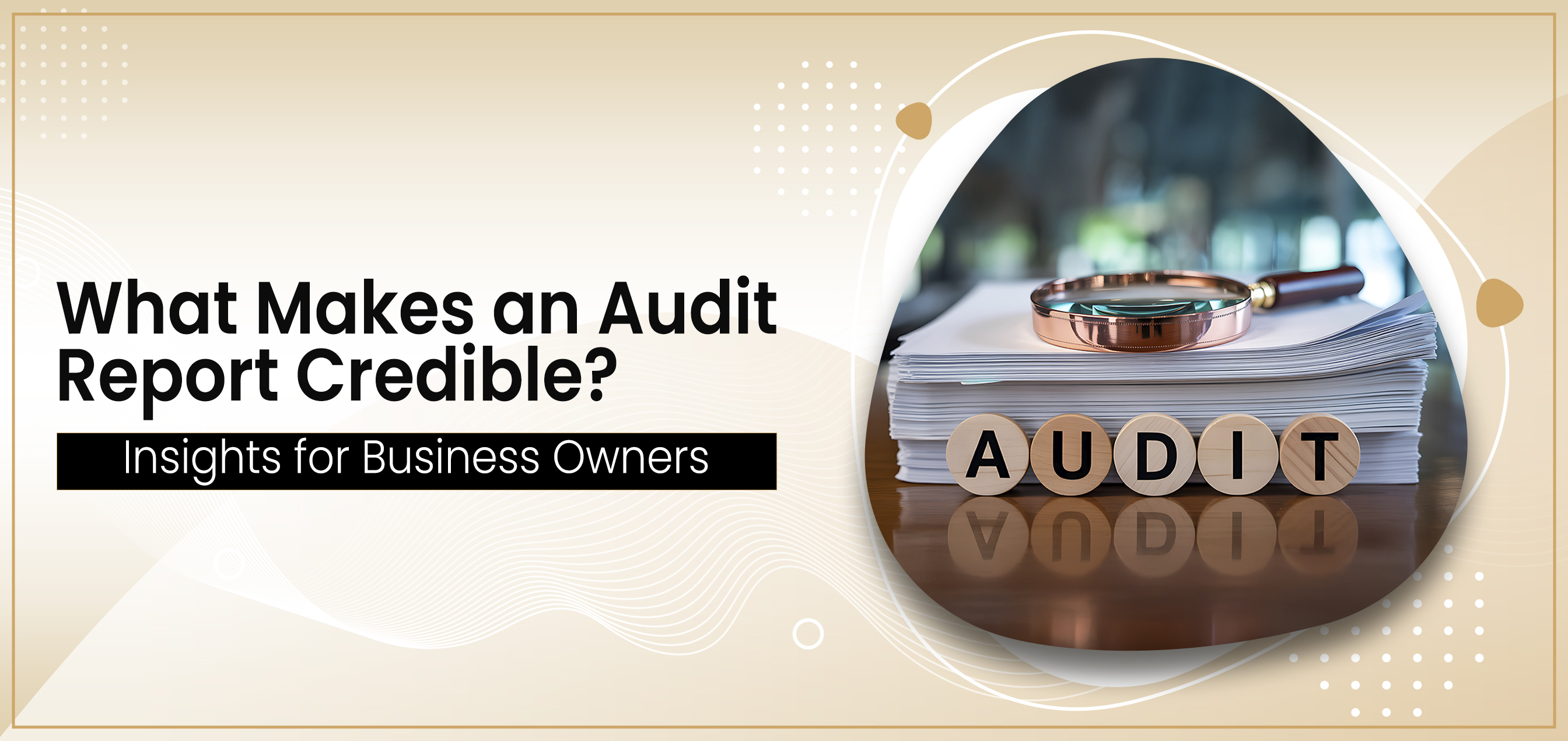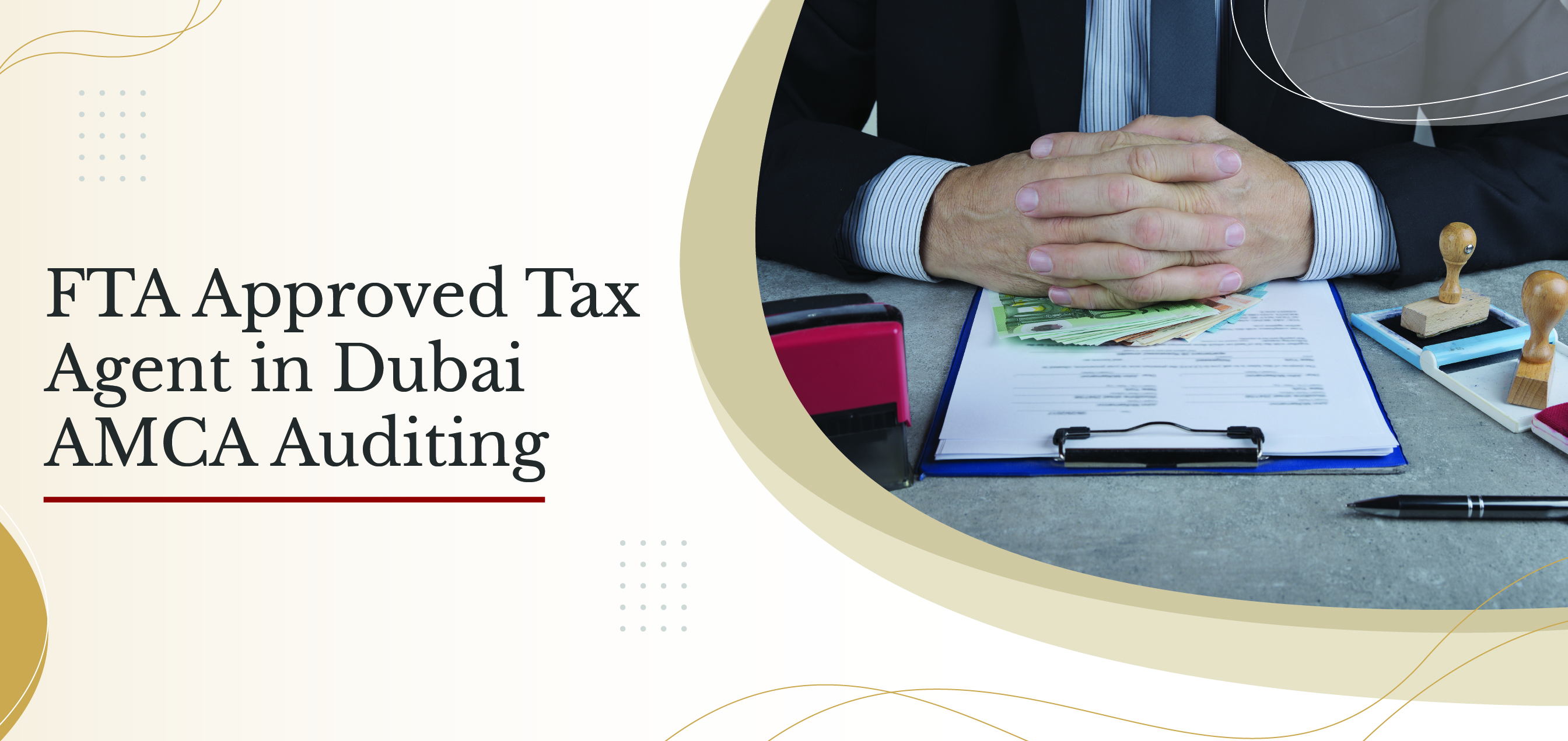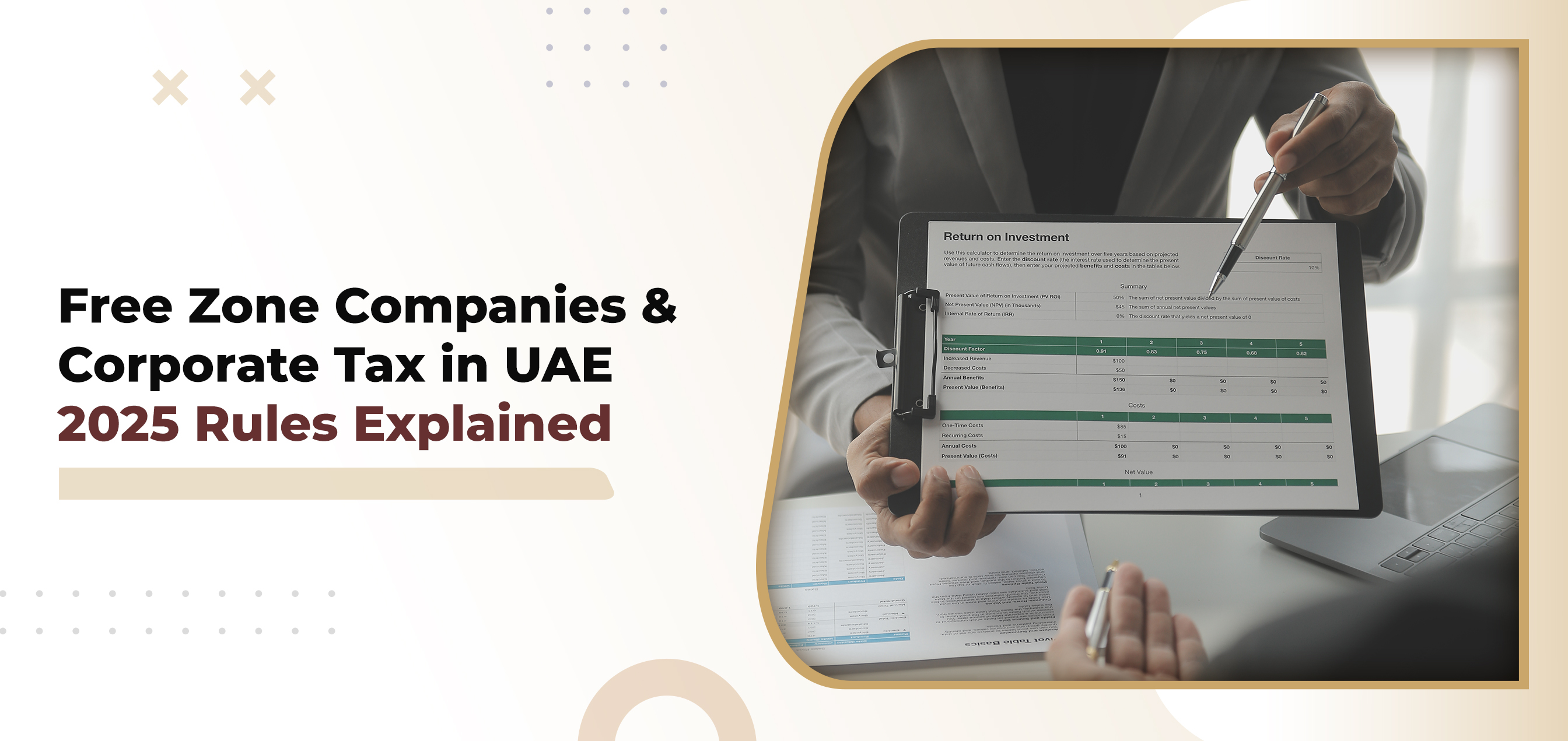
16 Apr 2024
How to register Corporate tax in Dubai, UAE
Successfully operating within the complex framework of corporate tax registration in the United Arab Emirates (UAE) is essential for businesses aiming to ensure adherence to the dynamic regulatory landscape. The Ministry of Finance introduced corporate tax in 2022, followed by its imminent full-scale implementation in June 2023, so businesses must align with these regulatory changes. Access to reliable guidance and professional services becomes paramount in this dynamic environment.
This blog is a comprehensive resource, offering insights and guidance on corporate tax registration in the UAE. It emphasizes the importance of compliance, understanding tax laws, and leveraging expert assistance to effectively navigate this critical aspect of business operations. Let's delve into the essential aspects of corporate tax registration in the UAE and how businesses can seamlessly navigate this process.
Corporate Tax Registration in UAE
Registration for corporate tax in the UAE is governed by Federal Decree Law No. 47 issued by the Federal Tax Authority (FTA). Under this law, every taxable entity, including Free Zone Persons, must register for corporate tax and obtain a unique Registration Number.
Taxable entities must file corporate tax returns for each tax period within nine months from the end of the specified period. This deadline applies to paying all corporate taxes due for the corresponding period.
In cases where an entity is excluded from taxation as declared by the Minister, it must still register for corporate tax with the Federal Tax Authority within a timeframe specified by authority. The registration process entails submitting necessary documentation in a format determined by the authority to obtain the Tax Registration Number. The Tax Authority determines the registration date for corporate tax from the moment an entity becomes taxable.
Once registered, entities are subject to a standard corporate tax rate of 9% on taxable income exceeding AED 375,000, while taxable income up to AED 375,000 is taxed at 0%.
How to register For UAE Corporate Tax?
The Federal Tax Authority has introduced a pre-registration system through the EmaraTax platform to initiate the corporate tax registration process in the UAE. EmaraTax is an online portal designed to streamline various tax-related activities, including registrations, returns, refunds, de-registrations, and payments. This user-friendly platform allows taxpayers to manage all tax obligations in one centralized location conveniently. Whether creating a new account or migrating to an existing FTA account, individuals must furnish the necessary documentation for successful corporate tax registration in the UAE.
Corporate Tax Registration Deadlines
In accordance with the regulations set forth by the Federal Tax Authority (FTA), companies residing in the UAE and incorporated or established before March 1 are obligated to register for corporate tax within specific time frames this fiscal year.
For instance, if a company's license was issued during January or February of any given year, it must ensure the submission of its corporate tax registration application by May 31 to remain compliant with the law.
Click here to get the full list of deadlines.
Who is required to register for Corporate Tax?
All taxable persons must undergo registration for UAE Corporate Tax and secure a Corporate Tax Registration Number.
Non-resident individuals generating income from sources within the state, lacking a Permanent Establishment or nexus in the UAE, are exempt from registration. This exemption stems from the absence of Corporate Tax obligations in the UAE, with primary taxing rights resting with their home jurisdiction.
Individuals aiming for Corporate Tax exemption, such as investment funds seeking Qualifying Investment Fund status, must initially register with the Federal Tax Authority. Following registration, they can proceed with their application for Corporate Tax exemption.
Who is exempt from UAE Corporate Tax?
Certain entities are automatically exempted from UAE Corporate Tax:
- The UAE Federal and Emirate Governments, their departments, authorities, and other public institutions.
- Companies wholly owned and controlled by a Government Entity engaged in a Mandated Activity, as listed in a Cabinet Decision.
- Businesses that extract UAE Natural Resources or related non-extractive activities are subject to Emirate-level taxation, provided they meet specific conditions.
- Qualifying Public Benefit Entities.
Moreover, the following entities can be exempted from UAE Corporate Tax upon approval of an application submitted to the Federal Tax Authority:
- Qualifying Investment Funds meeting prescribed conditions.
- Public or private pension or social security funds meet specific criteria.
- UAE juridical persons wholly owned and controlled by certain exempted entities, undertaking specific activities outlined in the Corporate Tax Law.
Why is it essential to conduct a Corporate Tax Assessment before Registration?
Assessing the risks and legal factors associated with corporate tax is crucial before and after implementing tax strategies. By doing so, businesses can ensure compliance with the country's tax regulations. Failing to assess corporate tax requirements properly may result in fines and penalties. The assessment process typically includes evaluating the impact, reviewing relevant documentation, and ensuring tax compliance. Conducting this evaluation should involve professional corporate tax consultants or firms offering high-quality assessment services.
Moving forward, we will delve into Corporate Tax Registration services, which streamline and expedite the registration process.
How AMCA can Help you with Corporate Tax Registration?
At AMCA, our team boasts highly qualified and experienced tax consultants specializing in Corporate Tax registration. Our tax advisors are dedicated to delivering top-notch services throughout the corporate tax registration process.
We remain vigilant about the significant changes resulting from implementing Corporate Tax, emphasizing the importance of early preparation to mitigate costs and alleviate stress on your team. Leveraging our extensive expertise and experience, we ensure a seamless and hassle-free transformation for your business.
AMCA provides ongoing support, offering Corporate Tax Registration updates and assisting with filing CT returns to keep you compliant with regulations and prevent fines and penalties.
Do you have questions regarding Corporate Tax Registration for your business? Contact AMCA today.
-
Read More: Impact of UAE corporate tax reform on businesses in free zones
-
Read More: Corporate Tax in the UAE: Frequently Asked Questions
-
Read More: Small Business Relief in the UAE: A Comprehensive Guide
Frequently Asked Questions
What is the rate of the new corporate tax in the UAE?
The corporate tax rate announced by the UAE government is set at 9% for profits exceeding AED 375,000. Profits up to AED 375,000 are expected to be exempt to support small businesses and startups.
What are the compliance requirements for corporate tax in Dubai?
Companies are required to register for tax, maintain proper accounting records, and file annual tax returns. Specific details regarding the format, deadlines, and procedures for filing tax returns are provided by the UAE Ministry of Finance. Compliance with international reporting standards such as the Common Reporting Standard (CRS) and Economic Substance Regulations is also mandatory.
What are the penalties for non-compliance with tax laws in Dubai?
Penalties for non-compliance can include fines, penalties, and late payment charges. Specific penalties depend on the nature and severity of the non-compliance. It is crucial for businesses to ensure full compliance to avoid these penalties.
Read More: FTA Decision No. 3 of 2024




